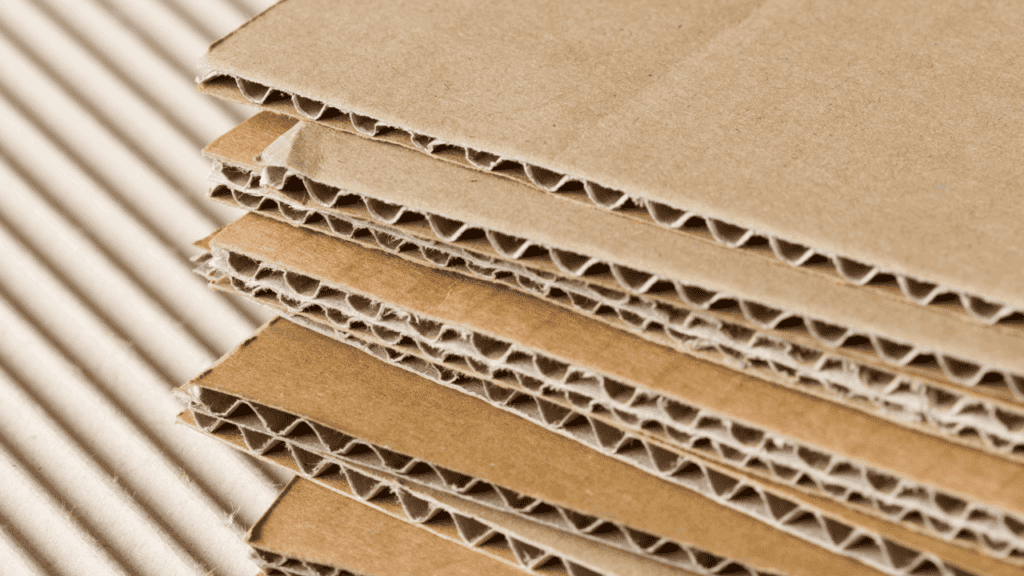Most people like myself think cardboard is more environmentally friendly and a better way to package products.
We always see ads for recycling cardboard and signs on our rubbish bins instructing us to place cardboard in there.
But there are some confusing facts when it comes to cardboard and whether it is biodegradable or not.
Is cardboard actually as eco-friendly as we are all lead to think? How can we help cardboard break down?
Table of Contents
Is Cardboard Biodegradable?
When carboard has not been contaminated with oil, food scraps, or water, it can certainly be recycled. Cardboard is naturally biodegradable, so there is no hard work required from us or machines in order to break it down.
What Is Biodegradable?
Biodegradable sits on a spectrum.
You have one end with things that can break down easily, like cardboard, and the other end with materials that take so long to break down if they break down at all.
Common degradable items are:
Cardboard
Paper
Meat
Wool
Canvas
Wood
Fruit and vegetables
Things like plastic bottles will be decomposed eventually, but this can take a ridiculous amount of time.
It is said that a plastic bottle can take 450 years to decompose fully, and aluminum cans take 200 years.
The biggest killer of all is diapers that take 500 years to decompose.
Fortunately, cardboard is a popular item around homes. We use them for moving.
Tools and toys can be packaged in them. We even use cardboard for arts and crafts.
The good thing about cardboard is when it breaks down or is recycled, it doesn’t leave behind toxic residues.
Different Types Of Cardboard
Juice and milk cartons are classed as a heavy process cardboard as they are coated with substances like wax, so they don’t leak.
These are biodegradable, but it will take around 5 years for them to break down.
This is mainly due to the fact the wax makes them resistant to water, so the process is prolonged. Corrugated cardboard will break down faster.
It also happens that the further along the cardboard is towards being broken down, the process will complete faster.
Shredded or ripped cardboard that has been mixed with suitable soil can offer a quicker biodegradation process.
The more the cardboard has been exposed to biological decomposers and water, the better it will break down.
Which Is Better Composting Or Recycling?
Both of these ways can have a negative effect on the environment.
Deforestation is a huge problem that isn’t going away.
In fact it seems to only be getting worse. In the US alone, each year, we are seeing a higher paper consumption and both companies and individuals being more wasteful.
Some think that recycling is the best approach to stop deforestation, which is true and false.
When we recycle, we are stopping trees from being chopped down, which is always important. But the other side of that isn’t eco-friendly.
The recycling plants are huge polluters, and each sheet goes through 10 liters of water that needs chemicals mixed into it.
That means the leftover pulp is by now very toxic but is returned to the water sources that all of us drink from.
Composting
Natural materials mostly make up cardboard which is why it is suitable for composting.
It can be broken down by the elements naturally without leaving behind a pile of toxins. Adding cardboard to your compost is actually a good thing.
Cardboard can stop your compost from releasing huge amounts of smelly odors, and it also adds balance to it.
Composting can stop some emissions that are used for recycling, such as machinery, trucks, and chemicals being released both in the water and the air.
Conclusion
When cardboard is cold, stacked properly, is kept dry, and has no exposure to the elements, it can last for years and years.
Eventually, you will get microorganisms that will work their way in and break it all down, but this is a process that takes that long it isn’t worth following.
If you add chopped-up cardboard to your garden, the biodegradation will occur fast and can be completely broken down within three months.
Frequently Asked Questions About Cardboard
What Helps Break Cardboard down?
If the cardboard is exposed to moisture and heat, it will break down faster. If the cardboard is broken up into smaller pieces, it will also break down quicker than whole pieces.
Is All Cardboard Biodegradable?
Cardboard is biodegradable and recyclable but how certain cardboard is recycled is not completely environmentally friendly.

